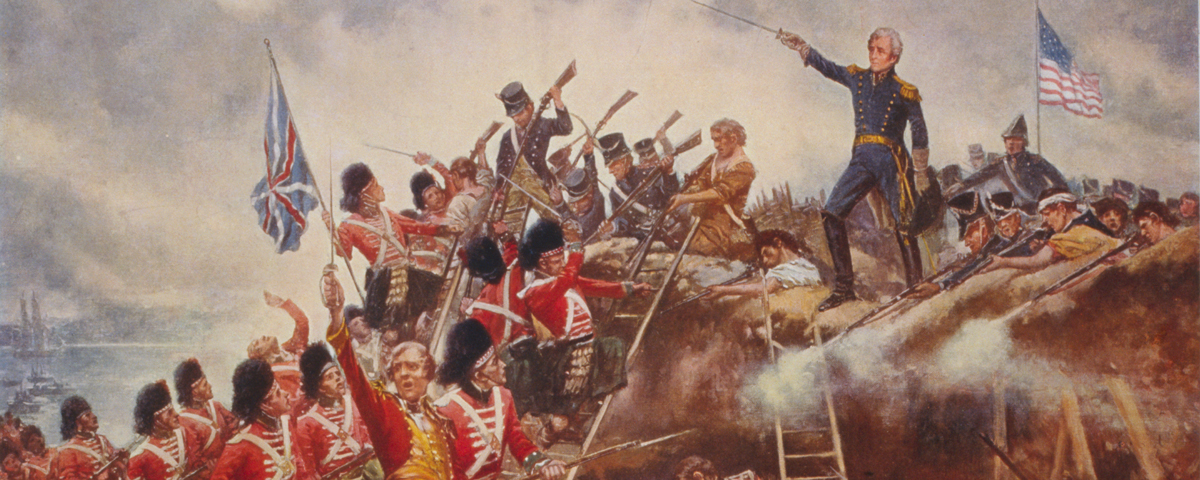Glorious Victory: Andrew Jackson and the Battle of New Orleans, by Donald R. Hickey, Johns Hopkins University Press, Baltimore, Md., 2015, $55
The latest entry in Johns Hopkins’ Witness to History series, this book was released to mark the bicentennial of the Battle of New Orleans, considered by contemporaries a “glorious victory” over British regulars by a motley American army commanded by colorful future President Andrew Jackson. Hickey, a recognized War of 1812 scholar, elegantly recounts America’s “Second War of Independence” and Jackson’s emergence as a conquering man of the people who became perhaps the most pivotal figure in American history between George Washington and Abraham Lincoln.
In 1812 the United States was goaded into an unpopular war it was ill prepared to wage as a byproduct of Britain’s war with Napoleonic France and enforcement of a naval blockade that seized hundreds of American ships and impressed thousands of naturalized U.S. citizens into the Royal Navy. Greatly outmatched, the United States endured a series of military disasters, in particular the British burning of Washington, D.C. Victories at Baltimore and Plattsburg provided only partial mitigation, and while peace negotiations were under way in Europe, the war’s final campaign played out on the Gulf Coast.
Jackson, a Scotch-Irish frontiersman who became a prominent member of the Tennessee gentry, combined innate intelligence with grim determination in defeating both the Creek Indians and the British army in a series of battles. Hickey convincingly argues that Jackson’s culminating victory over the British at New Orleans on Jan. 8, 1815, validated the American war effort and ultimately induced the British to adopt more conciliatory diplomacy in the future. Hickey also effectively corrects several popular myths, notably that the war ended before the battle was fought. In fact, both sides were required to ratify the Treaty of Ghent, signed on Dec. 24, 1814, which the British did a few days later, while it took the United States until Feb. 18, 1815, a month after the battle, to proclaim the treaty.
—William John Shepherd





